- Home
- slideshows
- miscellaneous
- China's 'Las Vegas' is leaving billionaires behind in favor of the rising middle class - see inside the $3.4 billion mega-casino leading the charge
China's 'Las Vegas' is leaving billionaires behind in favor of the rising middle class - see inside the $3.4 billion mega-casino leading the charge
The MGM Cotai is located in Macau, which I accessed by ferry from Hong Kong. More specifically, the resort is on Cotai, a 2-mile strip of reclaimed land where casino giants have sought to create a new Las Vegas Strip of diversified mega casino-resorts offering everything from amusement parks to a mechanized dragon.

The MGM is surrounded by massive casino-resorts like Steve Wynn's Wynn Palace and City of Dreams Macau. There are more than 10 casino-resorts on "the Strip."
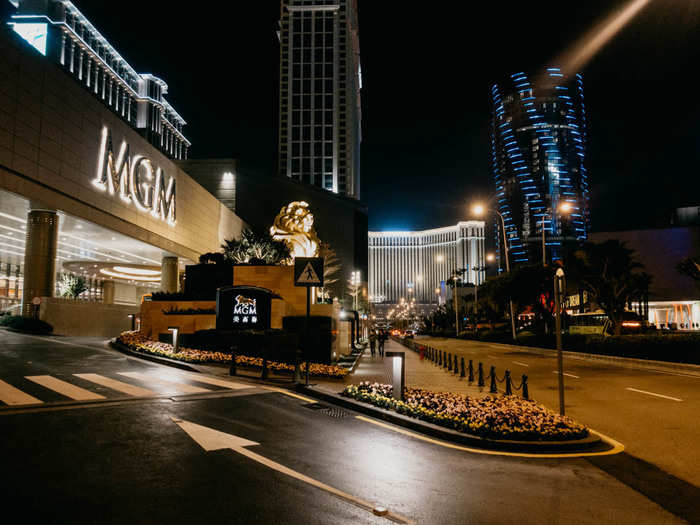
Opulence is the name of the game. The golden lion in front of the MGM Cotai weighs 38 tons, is 33 feet tall, and made from 32,000 sheets of 24-karat gold foil.
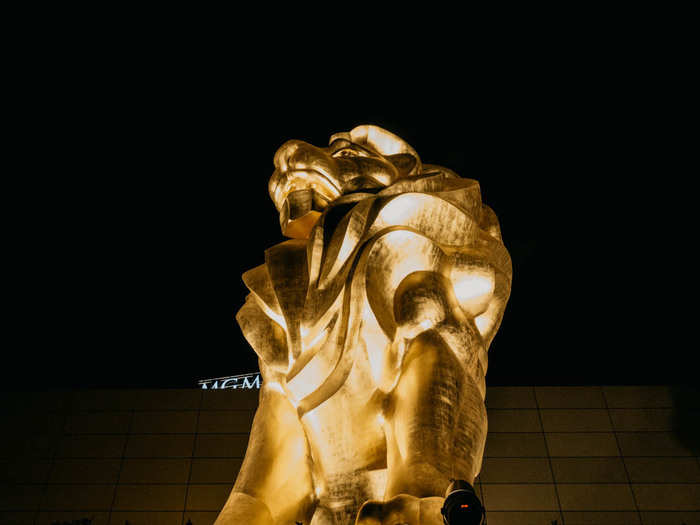
The facade of the MGM Cotai was designed by more than 350 architects, consultants, and designers to look like Chinese jewelry boxes. It's a pity, however, that you can't really see it from "the Strip," which is how most people will enter.
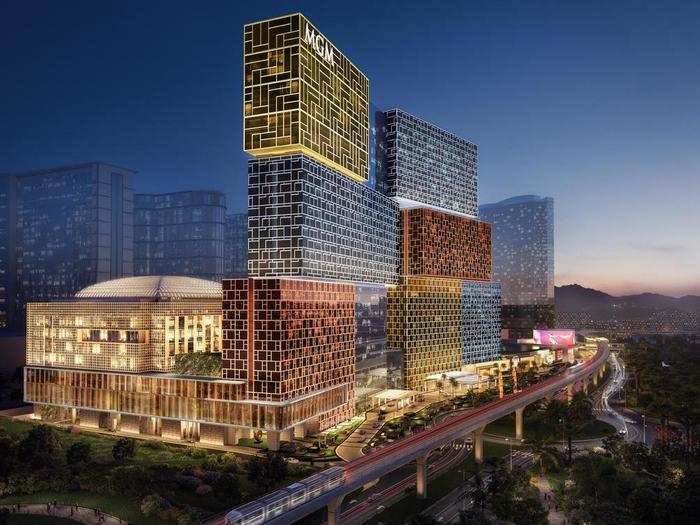
The resort's focus on art is apparent from the moment you walk in. Behind the reception desk is the painting "Dancing Light (2016)" by renowned Chinese painter Hsiao Chin. The painting is a revisitation of his most famous series from the 1960s.
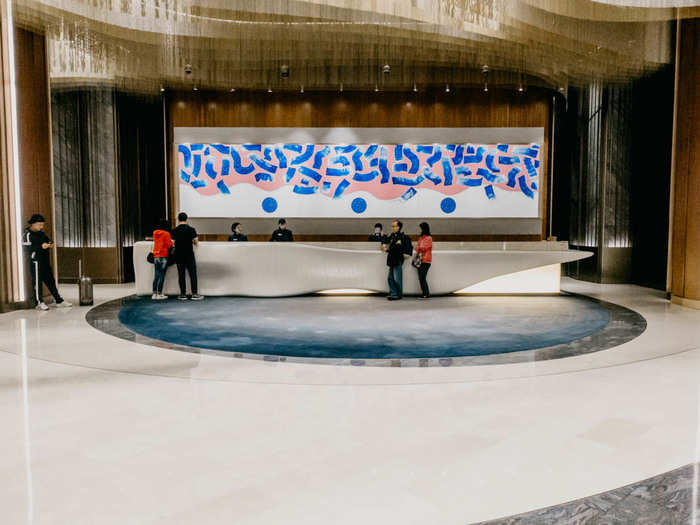
Source: 3812 Gallery
The level of detail on the property is stunning. This glass sculpture of flying leaves lines the ceiling of the lobby.
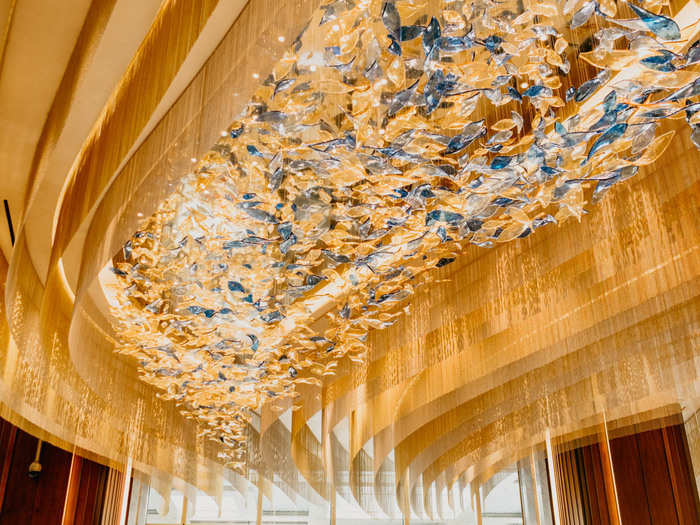
The centerpiece of the MGM Cotai is "the Spectacle," an array of 25 LED screens four stories tall that plays seven hours of content collected by San Francisco creative studio Obscura Digital, from footage of China's stunning nature to digital art generated by guests at the MGM.

The dome is also home to the world's largest "art garden." It has more than 100,000 plants, from 2,000 plant species, including several extinct species brought back to life from seed banks in Hong Kong and Europe.
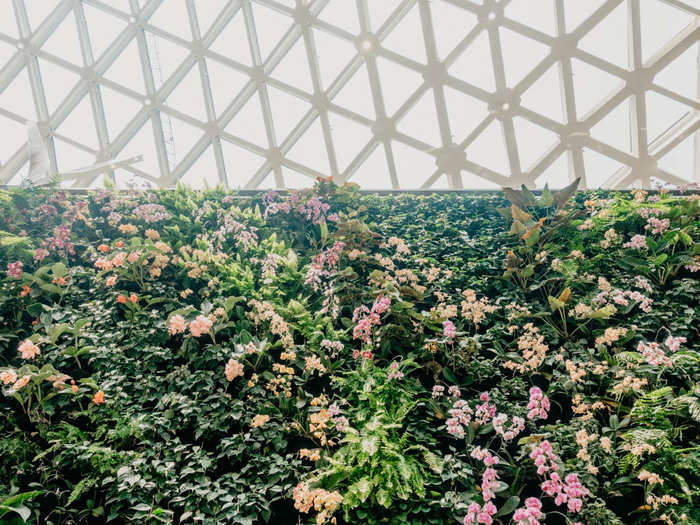
Source: Review-Journal
The game floor feels hidden. To get there you pass through this golden doorway. It's very different from other MGMs I've been to, where it feels like the only space not occupied by gambling is the hallways.
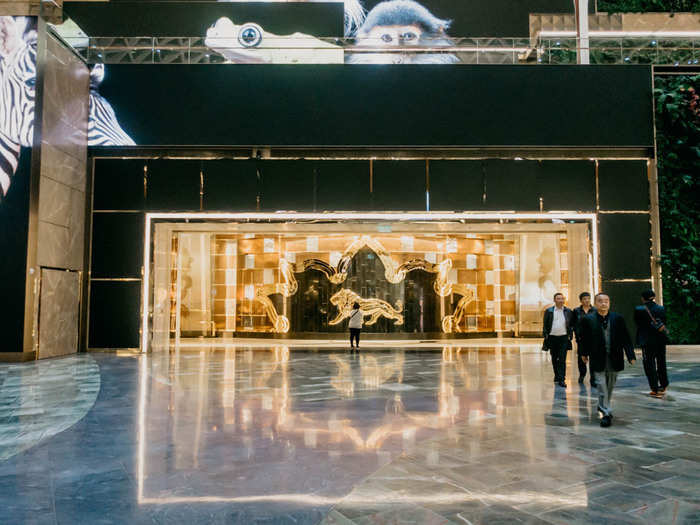
My favorite art at the MGM was "∞ Harmony" by Wang Kaifang, which used wind power and 3D printing to capture "the movement of silk flowing in air." Eighty craftsmen spent 100 days working on 24 tons of stainless steel and 80,000 sheets of 24K gold to create it.
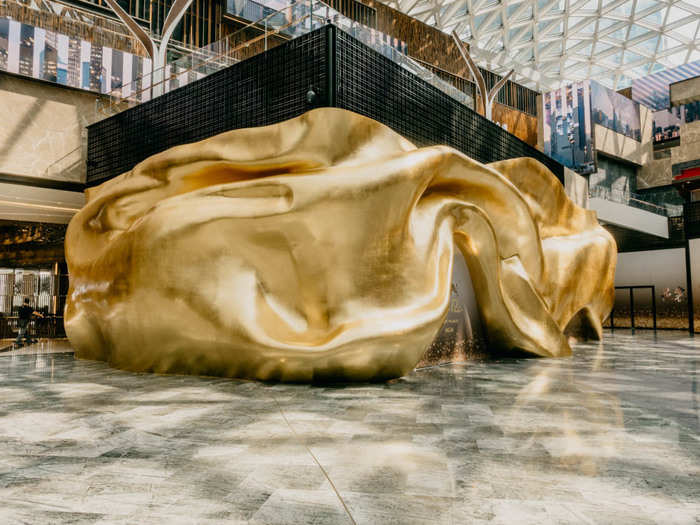
Source: Hong Kong Tatler
Only 10% of the resort is occupied by the casino, partly by design and partly by necessity. The Macau government only granted the property 125 gaming tables. I was surprised to find that the vast majority of tables were baccarat, a game not often played in the US.
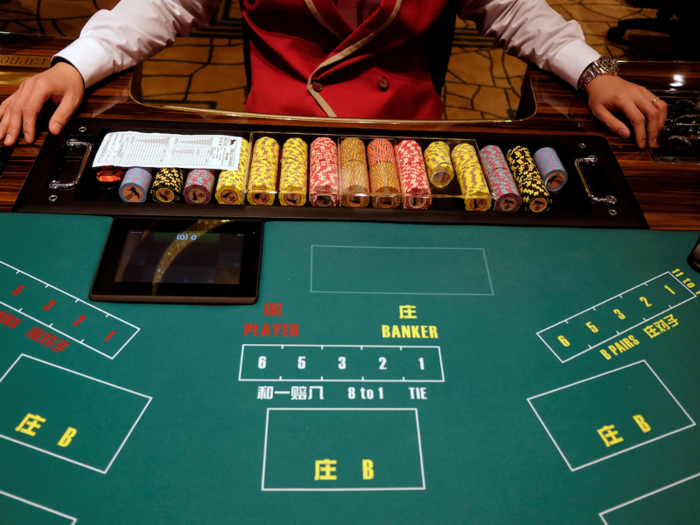
There's a definite focus on high-end food, catered to a Chinese audience. My first meal at the resort was at Five Foot Road, featuring Sichuan cuisine, known for dishes cooked in chili oil.
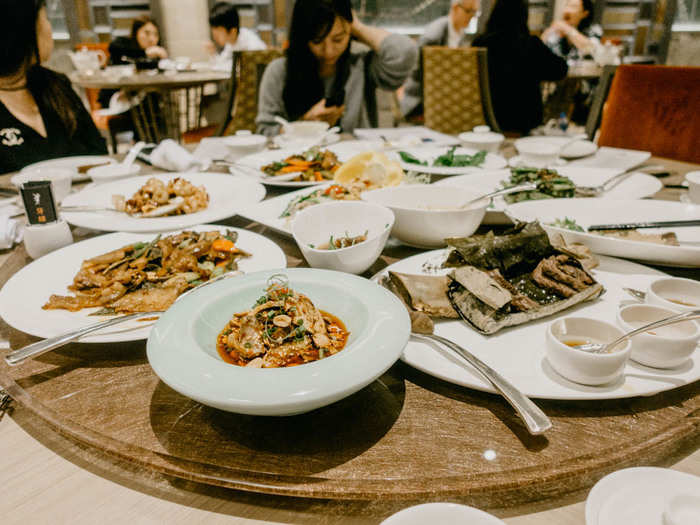
The resort has a collection of 28 priceless Chinese imperial carpets from the Qing dynasty that were once in the Forbidden City of Beijing. The carpets use silk, gold, silver and copper threads to depict dragons, phoenixes, and flowers.
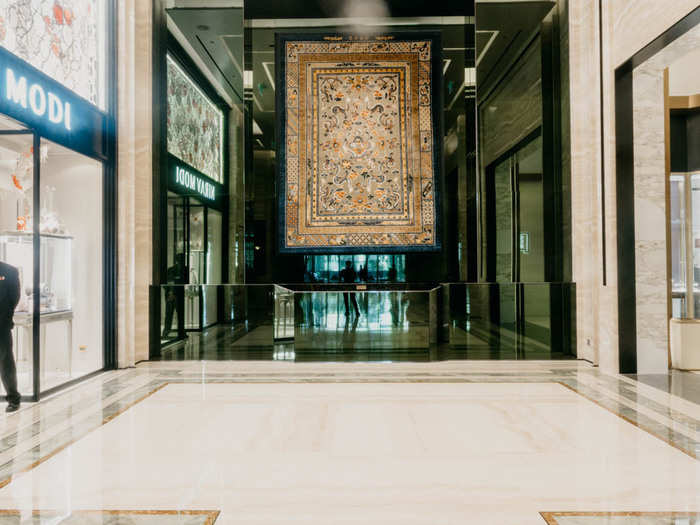
After touring the art, I headed to a reception with the artists and remarks by Pansy Ho, the billionaire chairman of MGM China. Even the walk to the ballrooms was elegant.
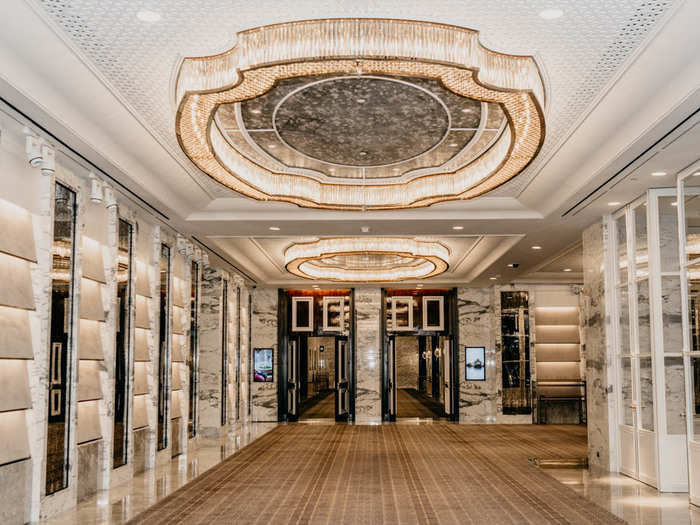
At the reception, a tea artist was performing tea ceremonies with this traditional long pot. She was deft with the pot, moving through rows of cups in seconds.
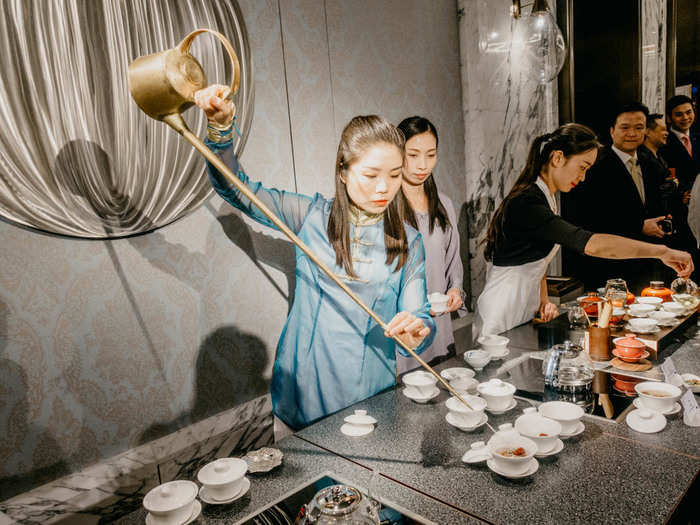
The tea had a mix of dried fruits and flowers. It tasted expensive, but it wasn't to my liking. Too sweet.
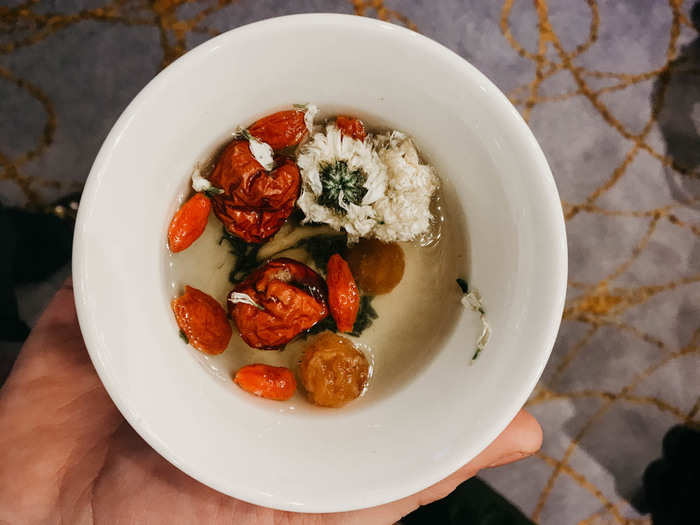
Afterwards, I headed up to my room to chill out before dinner. The decorations in the hallway mirrored that of the jewelry box facade. Lots of shiny colorful metal and gold.

It was fairly spacious for a standard room of two double beds. The beds were, of course, very comfortable and the blankets fluffy.
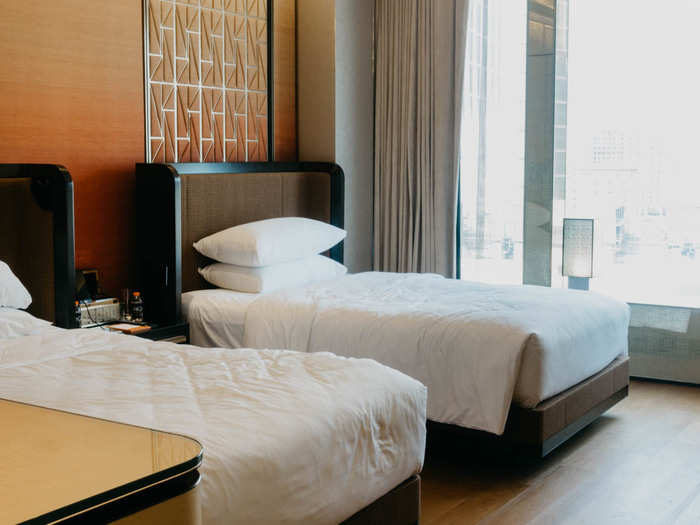
Nifty touch panels around the room controlled everything from shades to lights and temperature.
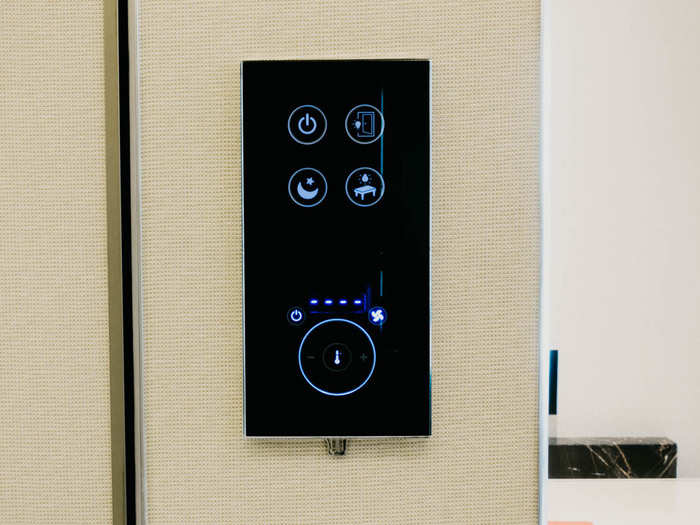
There was a phone that could do the same. as well as handy USB charging ports next to the beds. My favorite.
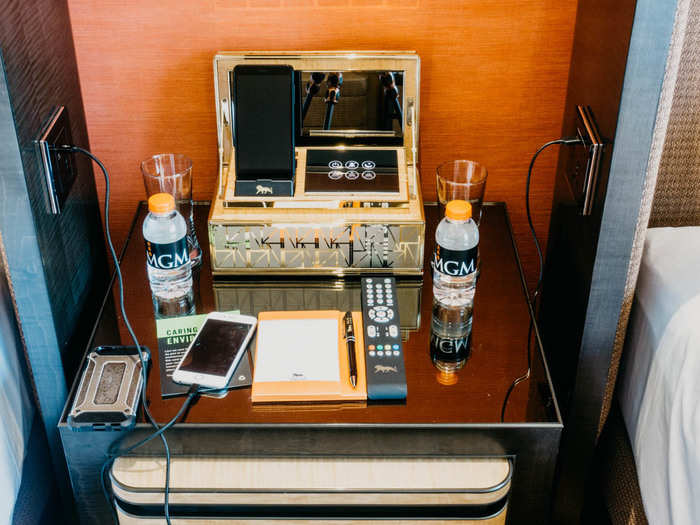
The TV was equipped with an e-newspaper, a variety of international cable channels, a wide selection of music, and the ability to stream from your computer or phone.
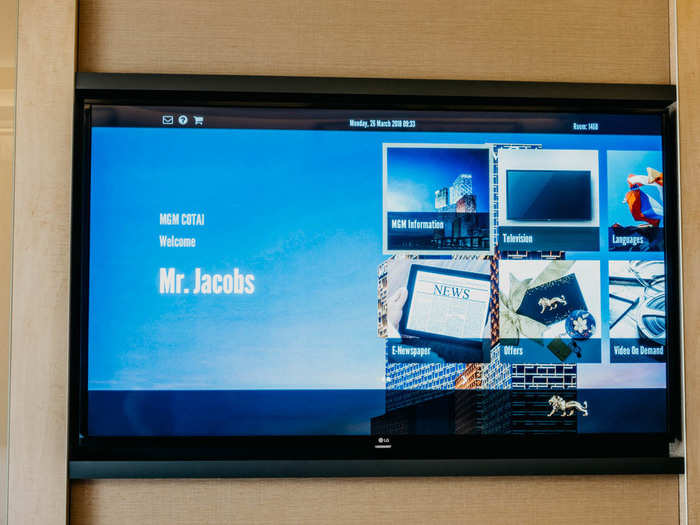
Turndown service had already arrived and dropped matching slippers next to the bed.
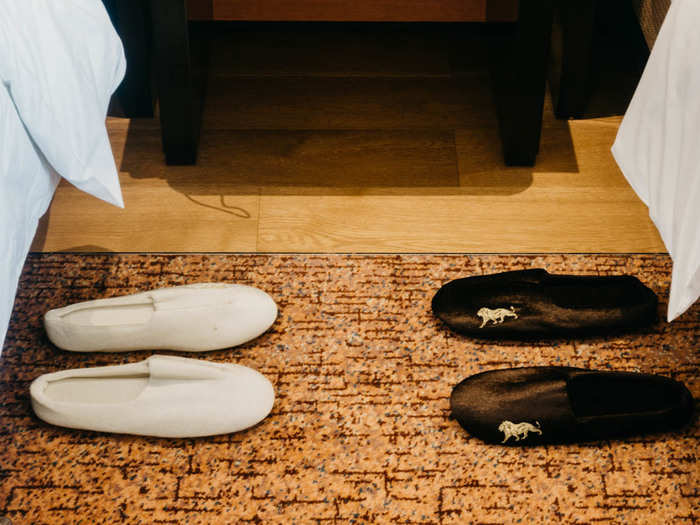
Room service was not cheap. A steak was $61 (It's 8.08 Macanese Patacas to the dollar).
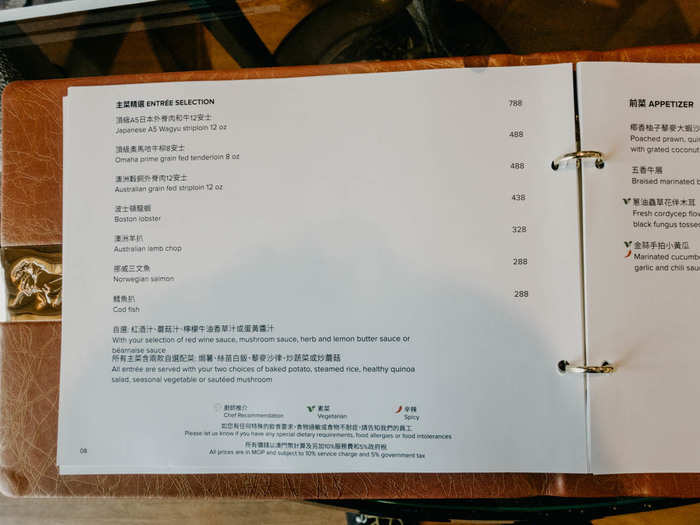
One of the coolest features of the room was the bathtub. Well, not the bathtub. But the screen behind the bathtub, which could go up or down so you could watch TV in the bedroom while in the bath.
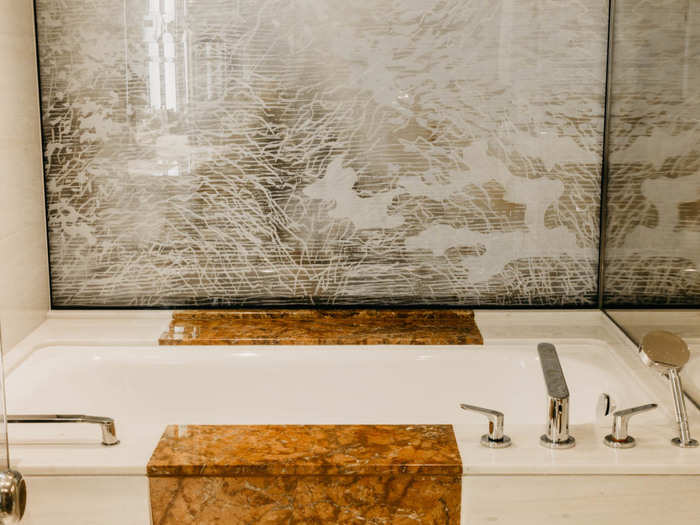
And just in case you were wondering what kind of toiletries a $3.4 billion casino-resort gives out ...
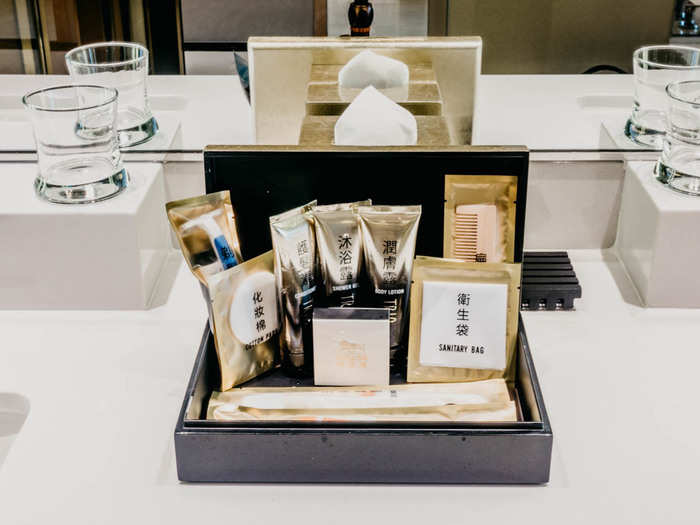
Thta night, I headed to Aji, one of the MGM's nine restaurants. Aji is the brainchild of Japanese-Peruvian chef Mitsuharu Taumura. He serves Nikkei fusion cuisine created by Japanese immigrants in Peru. One highlight dish was the Gindara Misoyaki, black cod with saikyo miso and Porcon mushroom powder.
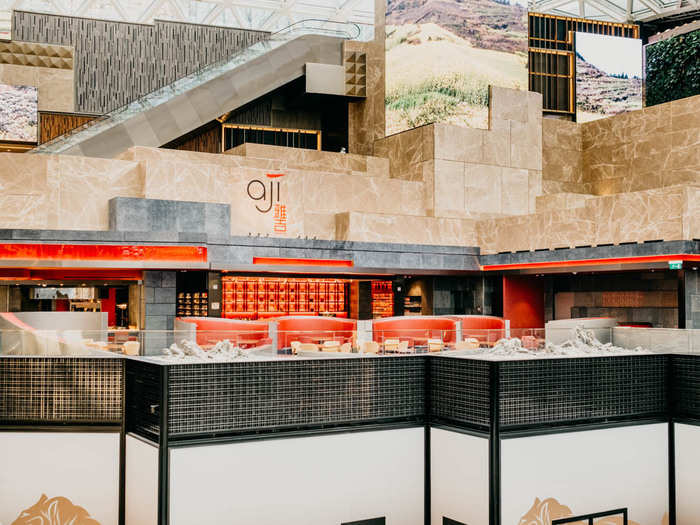
The night ended with an extravagant 600-person grand opening dinner party and performance by singer Kylie Minogue in the MGM Cotai's $100 million theater. The theater can be reconfigured on the go for 10 different configurations. On the grand opening night, it went from banquet hall to theater to nightclub.
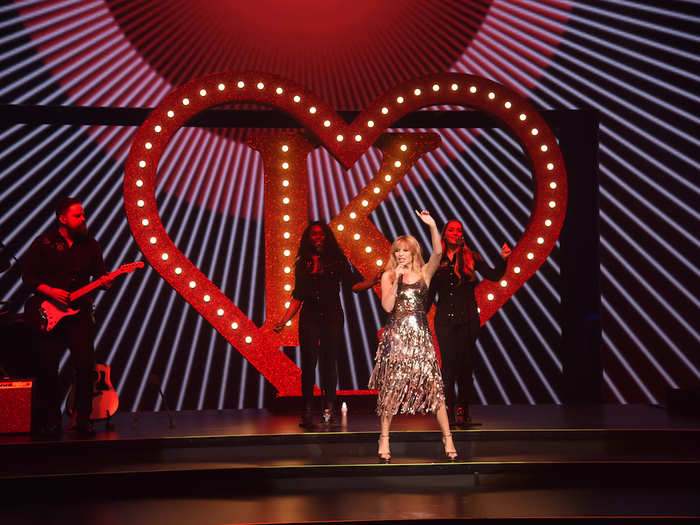
I must confess: I overslept the next morning. The curtains were so thick that they blacked out literally all light from entering the room. I hopped into the rain shower — practically a given at a high-end hotel.

"American-style" breakfast was at Coast, a restaurant by celebrity chef Graham Elliot of “Top Chef” fame. It was a pretty expansive spread with everything from bacon and pancakes to Chinese dim sum dishes.
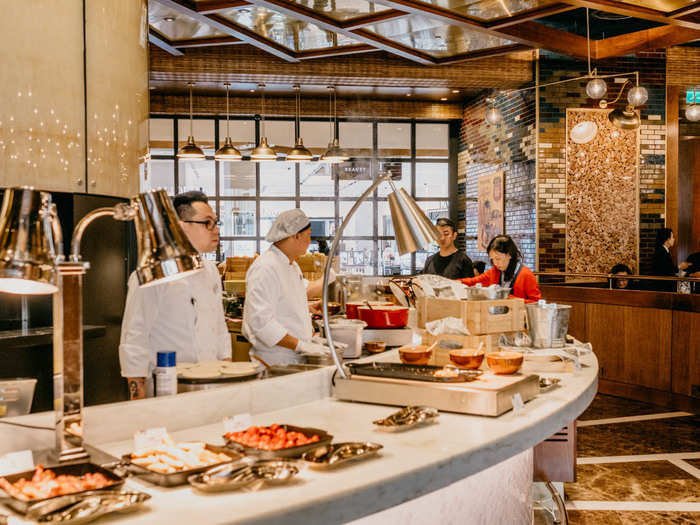
Not that I was complaining. The beef noodle soup was delicious. The "American-style" dishes were fine, but not outstanding. The donut, however ... let's say I didn't originally plan on eating the whole thing.
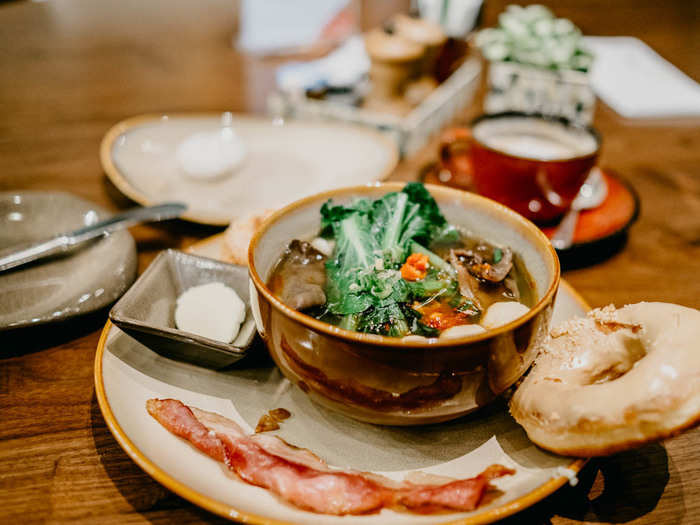
After breakfast, I went to check out the Emerald Lobby, the resort's more secluded entrance for high-end guests. Note the orb-shaped Swarovski crystal chandelier.
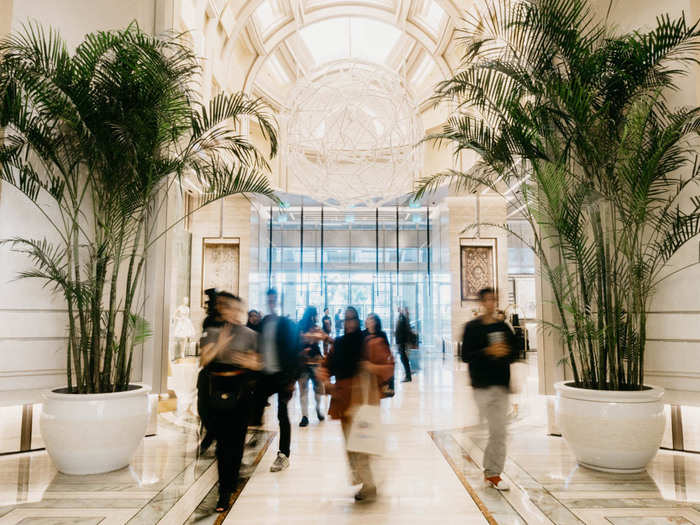
It looked even more luxurious than the main lobby, if that was possible. The floor and walls alternated between a white marble and jade, one of most highly prized stones in Chinese culture.
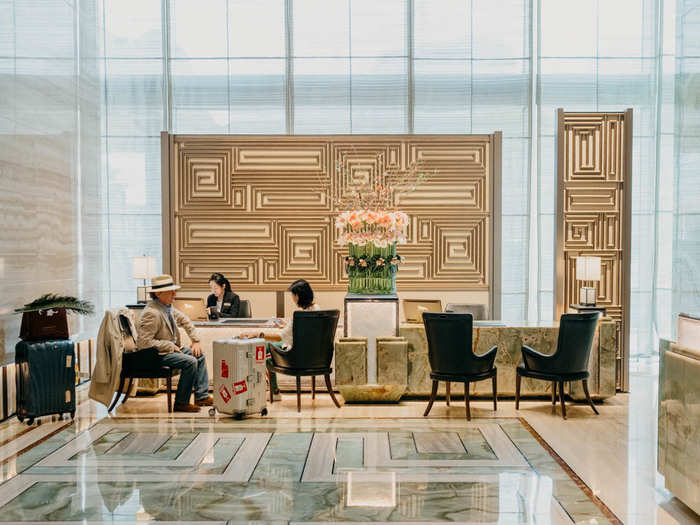
If I had time, I would have taken a dip into the pool or one of the resort's Jacuzzis, but I was on a tight schedule.
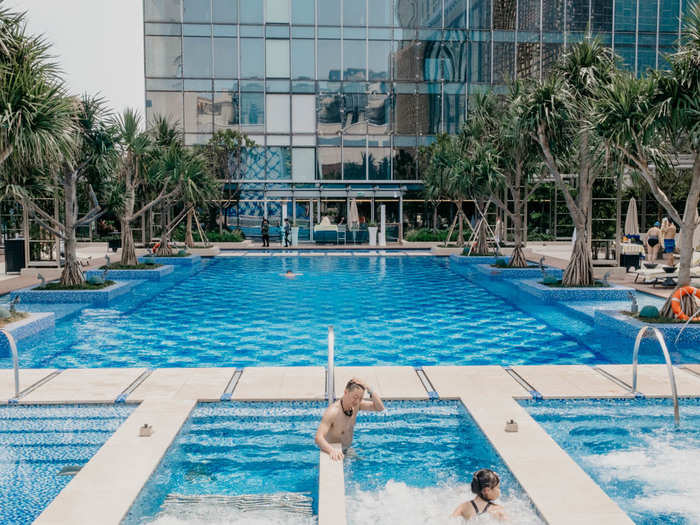
One of the busiest spots in the resort was Janice Wong MGM, a 68-seat pastry shop by the Singaporean pastry chef. It has a 23-foot chocolate fountain. Wong won Pastry Chef of the Year in 2011, 2013 and 2015 from the World Gourmet Summit.

I had lunch at Chún, which takes classic Cantonese dishes and elevates them with modern twists. The highlight of the meal for me was this crispy-fried pork spare rib. It was covered in a batter and then dipped in honey and pepper. I'm still dreaming about this.
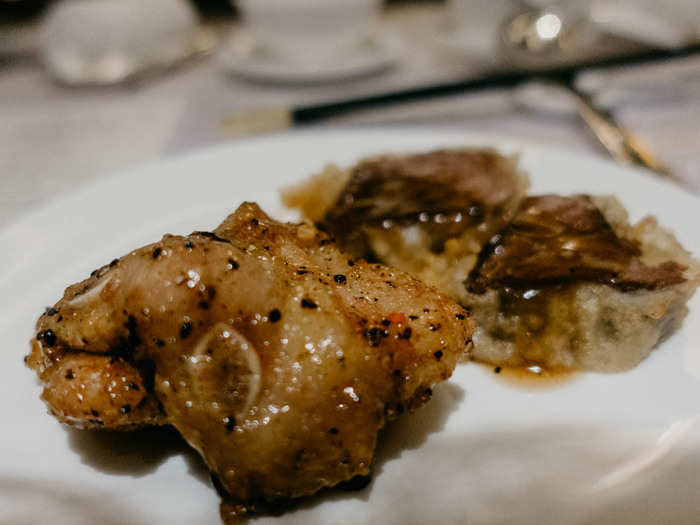
Lastly, I headed to the hotel's spa, Tria, where I received a short version of a Himalayan healing ritual. The masseuse placed singing bowls on different parts of my body — it's a strange sensation as the deep vibrations ripple through you.
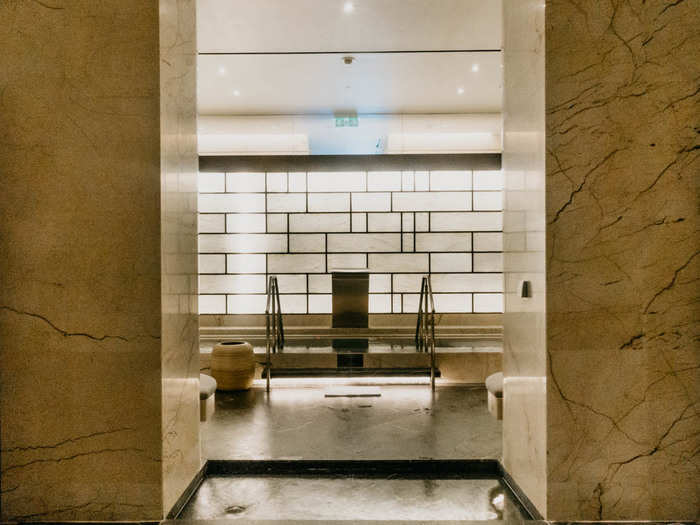
Before heading out, I stopped at Hao Guo, which offers hot pot as well as regional Chinese cuisine. We ordered the Peking Duck, which was plenty tasty. However, I have to say, after visiting Beijing a couple weeks later, it pales in comparison to the best duck on offer there.
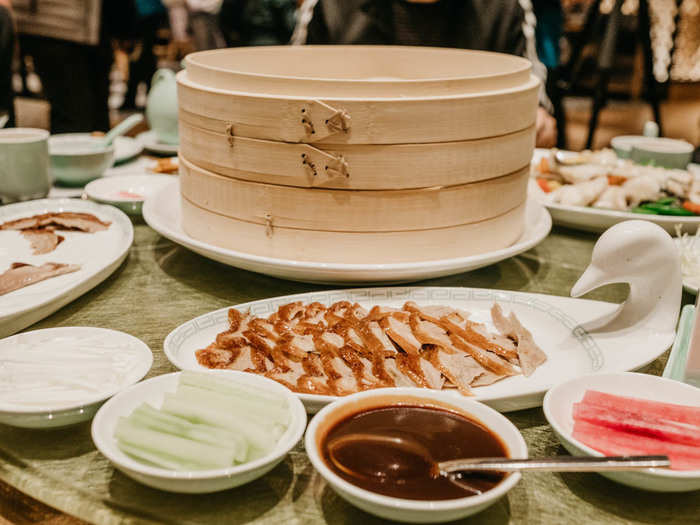
The resort struck me as both elegant and modern. But it was also sleepy and, while there's plenty of visual dazzle, I'm not sure if there's enough activities to consider it a family destination. More like a romantic getaway for a couple.
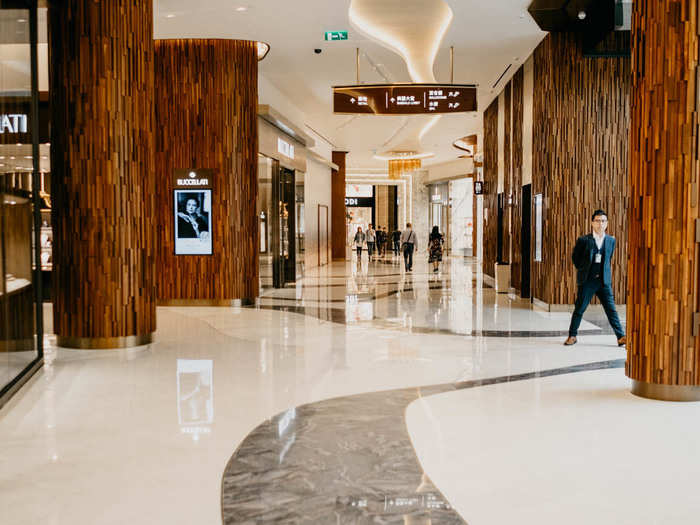
Time will tell if the MGM Cotai lives up to its goal of appealing to China's emerging affluent middle class. The stakes are high: MGM's gaming license is up for renewal in 2020 and, according MGM China CEO Grant Bowie, renewal will be "determined not by how successful we are at running casinos, but how successful we are at diversifying, allowing Macau to become more than just a gaming town."
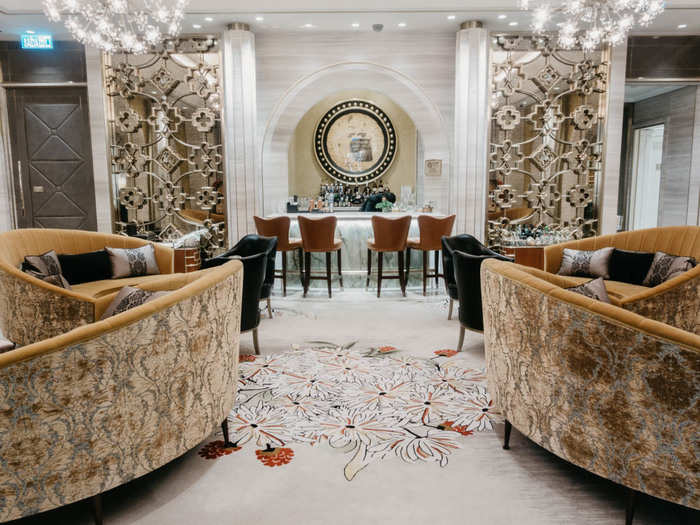
Popular Right Now
Popular Keywords
Advertisement